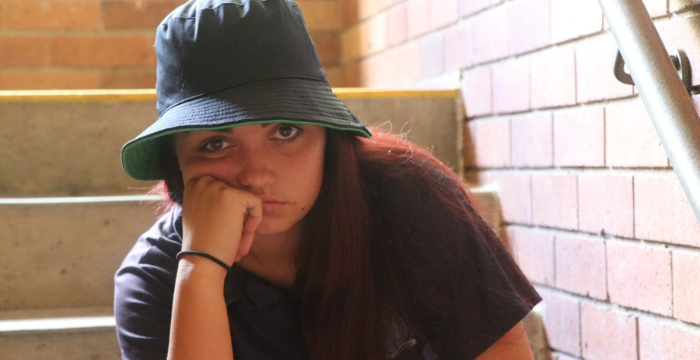
QUT and Share the Dignity release new preliminary research
New preliminary research by QUT for Share the Dignity has highlighted how high school students struggle to afford period products when they aren’t readily available at school.
In 2016, Share the Dignity began installing Dignity Vending Machines which dispense free pads and tampons at the push of a button in homeless hubs, domestic violence shelters, hospitals, community hubs and schools across Australia.
Share the Dignity sought to engage a tangible way to measure the difference the Dignity Vending Machines had on school students and engaged QUT Australian Centre for Philanthropy and Nonprofit Studies to conduct a study.
The preliminary study titled Periods: How they impact our lives reaffirmed the key statistics found in Share the Dignity’s Bloody Big Survey released last year which had 125,205 participants.
Key results from the preliminary study with QUT found cost was the biggest barrier for high school students to use the right products for their period.
The study found 12.6 per cent of high school students had difficulty buying period products every month and 37 per cent of high school students sometimes had to ‘make do’ with tissue, cloth or paper instead of using pads or tampons due to the cost.
Hygiene was also impacted, with 21 per cent of high school students often wearing a tampon or pad for more than the recommended four hours.
The inability to afford period products was also found to impact attendance rates, with 19 per cent of high school students often or sometimes staying at home due to being unable to afford pads or tampons.

Share the Dignity founder and managing director, Rochelle Courtenay said the results from the study were heartbreaking but reaffirmed the work Share the Dignity was doing to end period poverty in Australia.
“No one should miss out on an education due to their period, but the results of this preliminary study support the findings from our Bloody Big Survey that this has been happening in Australia,” Ms Courtenay said.
“It is so important period poverty doesn’t impact student’s schooling and I am relieved no Queensland students will be left behind as the Queensland Government has committed to providing students in all Queensland state schools with access to free period products.
“I hope this study, along with our Bloody Big Survey, is the motivation needed to see period products provided at all schools nationwide, not just those in Queensland, New South Wales, Australian Capital Territory and Victoria.”

Dr Ruth Knight, researcher at QUT’s Australian Centre for Philanthropy and Nonprofit Studies, said this research is critical as it provides schools and employers evidence they should find ways to support students and employees to manage their period with dignity.
"The findings show many women may be at risk of poor menstrual health as they find it challenging to afford period products or cannot speak openly about how menstruation affects them socially, physically or mentally,” said Dr Knight.
Following the results of the preliminary study both Share the Dignity and QUT hope to see the study expanded to include more students across Australia to get a bigger picture of the impact of the problem.
Download the report here: https://www.sharethedignity.org.au/end-period-poverty/dignity-vending-machines/periods--how-they-impact-our-lives
If you would like to support Share the Dignity’s work to end period poverty in Australia and ensure students don’t miss out on an education, support their Dignity Drive and drop period products into any of the collection bins nationwide this August.




